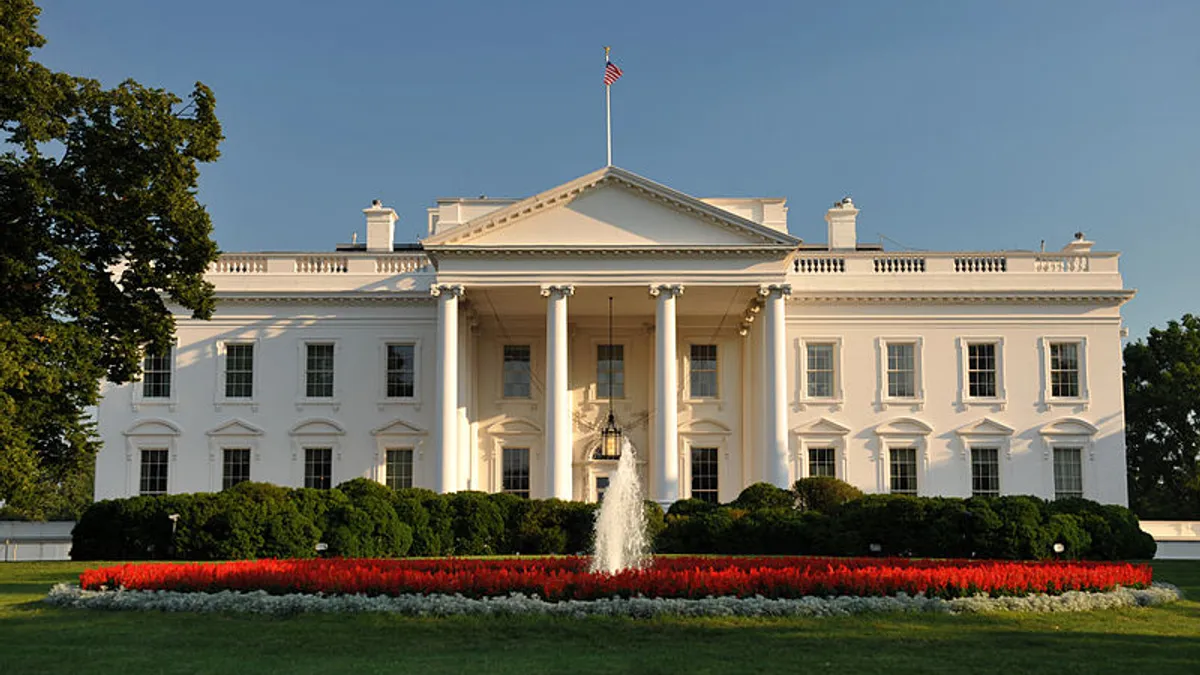Dive Brief:
- FDA emerged from President Donald Trump's fiscal year 2020 proposed budget with the backing for a number of medtech priorities. The wishlist to Congress would boost medical device program funding to $632 million between congressional funding and user fees, up from the approximately $556 million allotted under the recent February appropriations deal for fiscal year 2019.
- Device center chief Jeff Shuren's effort to stand up an FDA Center of Excellence for Digital Health is called out for more funding as well. An FDA spokesperson said the $55 million allotted for a new system for medical devices refers in part to that effort, advocating for what would be a $30 million boost over the enacted level of funding for 2019 for "the growth and transformation of digital health."
- One new idea in the HHS budget in brief is a proposal to have Medicare cover devices approved through the Breakthrough Device Program for seniors in clinical trials for four years from when the device receives FDA approval. AdvaMed has lobbied for Medicare reimbursement for such devices.
Dive Insight:
While the budget proposal is broadly characterized as "dead on arrival" on Capitol Hill, maintaining funding support for FDA initiatives appears generally bipartisan.
The FDA Center of Excellence for Digital Health, first proposed in the administration's budget request last year, would focus agency efforts to stand up its digital health efforts, support its breakthrough device program, use real-world evidence and boost device cybersecurity.
"Overall, this will make medical device reviews, postmarket surveillance and cybersecurity efforts significantly more efficient and informative," FDA Commissioner Scott Gottlieb said in a statement. "These efforts could also make medical product review cycles more efficient; allow the agency to more quickly identify and address safety signals and cyber vulnerabilities; and spur the development of innovative, safer, more effective medical devices."
The proposed boost in funding was praised by the Alliance for a Stronger FDA, a coalition of non-profits, trade associations and companies, which lobbies for FDA funds.
"The Alliance for a Stronger FDA is quite pleased with the proposed increase in appropriated funding for FDA," the Alliance for a Stronger FDA said in a statement. "The agency will be able to apply new monies to important programs that benefit the American people, as well as hire needed scientific personnel to carry out the FDA's far-ranging mission."
AdvaMed argues the proposal to have Medicare cover breakthrough devices under certain circumstances will boost patient access to new devices and incentivize companies to develop products that treat life-threatening or irreversibly debilitating diseases. The trade lobby also praised a line item in the HHS budget in brief proposing to strengthen FDA and CMS' parallel review process that aims to reduce the time between FDA approval of a device and CMS coverage.
"Currently, the latest innovations that FDA designates as 'breakthrough' devices – those that have the potential to provide more effective treatment for life-threatening or irreversibly debilitating diseases or conditions – have an expedited path to market. But there is no equivalent path at CMS so these important technologies can efficiently obtain coverage and get to the patients who need them," AdvaMed CEO Scott Whitaker said in a statement.
A proposed rule from CMS with more details on the effort to speed coverage of breakthrough devices may be imminent. In the Fall 2018 Unified Agenda the administration targeted a March 2019 release of a regulation that would modify "the Medicare coverage process to streamline coverage of breakthrough technologies have the potential to improve patient health outcomes and quality of care."











